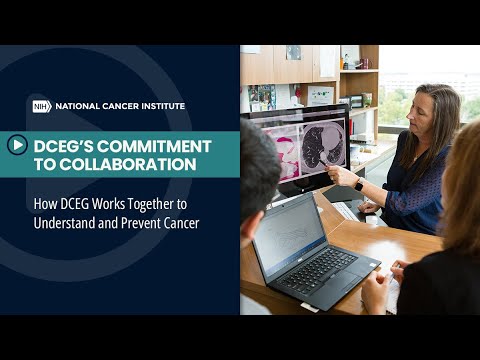Investigator Laboratories
Laufey Amundadottir Laboratory
Kevin Brown Laboratory
Jiyeon Choi Laboratory
Michael Dean Laboratory
Ludmila Prokunina-Olsson Laboratory
The Laboratory of Translational Genomics (LTG) investigates the biological basis of common inherited genetic variants associated with cancer susceptibility. This research relies on multidisciplinary approaches from population genetics, epidemiology, cellular/molecular biology and functional genomics.
Identification of Disease-Associated Genomic Loci
Investigators at the LTG are discovering genetic markers that associate with cancer risk, risk-associated phenotypes, and outcome using genome-wide association (GWAS) and genome-sequencing-based studies. Large-scale GWAS evaluate millions of single nucleotide polymorphisms (SNPs) in tens of thousands of individuals to identify common genetic markers contributing to risk for cancer and related phenotypes. Whole-genome and -exome sequencing of familiar cancer cases or individuals from high-risk populations could lead to identification of rare but high-impact genetic markers contributing to cancer risk.
LTG investigators lead and participate in internationally recognized consortia including the Pancreatic Cancer Cohort Consortium (PanScan), GenoMEL Consortium, International Lung Cancer Consortium (ILCCO), and ENIGMA consortium, and conduct research through a series of international collaborations for pediatric and adult cancers.
Functional Characterization Beyond Association
While GWAS and genome sequencing studies have yielded thousands of regions in the genome associated with numerous human diseases and traits including cancers of multiple sites, the causal variants and genes, as well as the mechanisms by which they influence risk, are often not apparent. To understand the biology underlying these associations, LTG investigators are following up with genomic studies, scalable functional screening, as well as focused investigations of biological mechanisms underlying risk associated variants.
These efforts could lead to discoveries of novel genes and pathways, new roles of known genes in the context of cancer susceptibility, and structural variants that are not apparent by standard detection methods. To establish the infrastructure to facilitate rapid discoveries, LTG is also committed to building genomic resources from diverse tissues and cell types and integrating high-throughput assays to functional follow-up.
Related papers
View a list of LTG publications.
GWAS
Landi MT, et al. Genome-wide association meta-analyses combining multiple risk phenotypes provide insights into the genetic architecture of cutaneous melanoma susceptibility. Nat Genet 2020.
Klein AP et al. Genome-wide meta-analysis identifies five new susceptibility loci for pancreatic cancer. Nat Commun 2018 Feb 8.
Ghislaine S, Purdue MP, Brown KM, [...] Chanock SJ. Genome-wide association study identifies multiple risk loci for renal cell carcinoma. Nat Commun 2017 Jun.
Wolpin BM et al. Genome-wide association study identifies multiple susceptibility loci for pancreatic cancer. Nat Genet 2014.
Petersen GM, et al. A genome-wide association study identifies pancreatic cancer susceptibility loci on chromosomes 13q22.1, 1q32.1 and 5p15.33. Nat Genet 2010.
Amundadottir L, Kraft P, Stolzenberg-Solomon RZ, et al. Genome-wide association study identifies variants in the ABO locus associated with susceptibility to pancreatic cancer. Nat Genet 2009.
Family Studies
Robles-Espinoza CD, Harland M, Ramsay AJ, et al. POT1 loss-of-function variants predispose to familial melanoma. Nat Genet 2014.
Yokoyama S, Woods SL, [...] Brown KM. A novel recurrent mutation in MITF predisposes to familial and sporadic melanoma. Nature 2011.
Somatic Alterations
Lou H, [...] Boland JF, [...] Dean M. Genome analysis of Latin American cervical cancer: Frequent activation of the PIK3CA pathway. Clin Cancer Res 2015.
GWAS Follow-up Studies
Zhong J, Jermusyk A, Wu L, […] Amundadottir LT. A transcriptome-wide association study identifies novel candidate susceptibility genes for pancreatic cancer. J Natl Cancer Inst 2020.
Choi J, Zhang T, [...] Brown KM. Massively parallel reporter assays of melanoma risk variants identify MX2 as a gene promoting melanoma. Nature Commun 2020.
Choi J, Xu M, [...] Brown KM. A common intronic variant of PARP1 confers melanoma risk and mediates melanocyte growth via regulation of MITF. Nat Genet 2017.
Fang J, Jia J, [...] Amundadottir L. Functional characterization of a multi-cancer risk locus on chr5p15.33 reveals regulation of TERT by ZNF148. Nat Commun 2017.
Middlebrooks CD, Banday AR, [...] Prokunina-Olsson L. Association of germline variants in the APOBEC3 region with cancer risk and enrichment with APOBEC-signature mutations in tumors. Nat Genet 2016.
Hoskins JW, Abdisamad I, [...] Amundadottir L. Functional characterization of a chr13q22.1 pancreatic cancer risk locus reveals long-range interaction and allele-specific effects on DIS3 expression. Hum Mol Genet 2016.
Prokunina-Olsson L, Muchmore B, Tang W, et al. A variant upstream of IFNL3 (IL28B) creating a new interferon gene IFNL4 is associated with impaired clearance of hepatitis C virus. Nat Genet 2013.
Genomic Resources
Zhang T, Choi J, [...] Brown KM. Cell-type-specific eQTL of primary melanocytes facilitates identification of melanoma susceptibility genes. Genome Res 2018.
Zhang M, Lykke-Andersen S, Zhu B, [...] Amundadottir L. Characterising cis-regulatory variation in the transcriptome of histologically normal and tumour-derived pancreatic tissues. Gut 2018; Epub 2017.
COVID Research
Onabajo, O […] Prokunina-Olsson, L. Interferons and viruses induce a novel truncated ACE2 isoform and not the full-length SARS-CoV-2 receptor. Nat Genet 2020.
